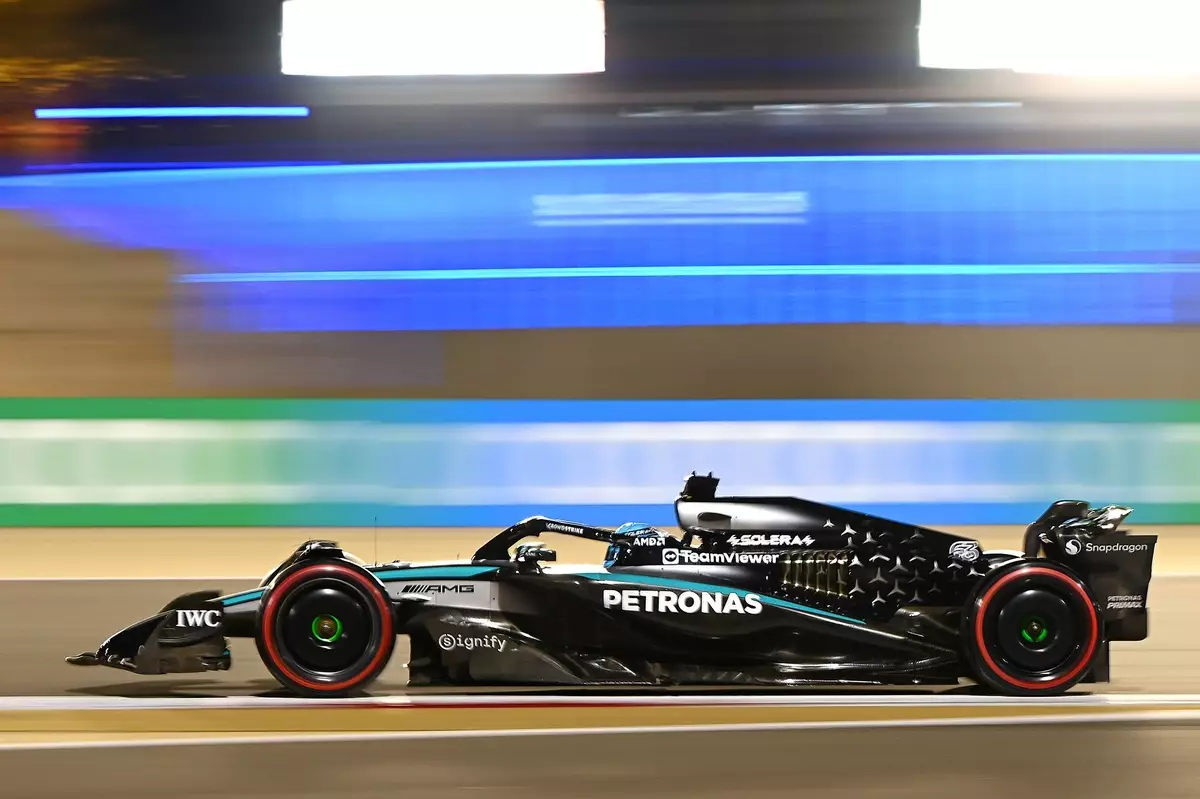The world of Formula 1 is notoriously unpredictable, with each season presenting its unique set of challenges and triumphs. As the curtain was raised on the 2024 season in Bahrain, expectations were decidedly low for Mercedes. The last race of the previous season had concluded with George Russell and Lewis Hamilton trailing a staggering 45 seconds behind the victorious Max Verstappen. Fast forward thirteen months, and the landscape looks radically different, as Russell secured a respectable second place, firmly positioning Mercedes as a competent contender in the ongoing championship.
This sudden shift signifies more than just improved performance; it represents a pivotal moment for Mercedes, who had to recalibrate after a disappointing start the previous year. The resolve to overcome adversity and learn from past mistakes has evidently paid off, establishing the team as the closest competitor to McLaren, the season’s frontrunner.
Resilience in Adversity
The 2024 Bahrain Grand Prix served as an essential barometer for measuring Mercedes’ progress amid fierce competition. With Red Bull struggling to maintain car balance and grip issues, the dominant force in previous seasons has found itself grappling for performance against an emerging McLaren team. Meanwhile, Ferrari appears stuck in the shadows, unable to keep pace over long distances.
Russell’s performance, not just in Bahrain but consistently throughout the season, showcases significant growth. His experience with the demanding nature of the previous year’s car has translated into a new-found consistency that was previously elusive. It was clear from the outset that the oppressive heat and rough track conditions would pose formidable tests for the teams. Surprisingly, Russell and Mercedes managed the pressure exceptionally well, defying expectations.
Toto Wolff’s Perspective: Evaluating Success
Team principal Toto Wolff, known for his candid assessments, expressed a mix of cautious optimism and realism in his evaluation of the team’s performance. The fact that both drivers qualified within the top four exceeded pre-race expectations. “We qualified P2 and P4. We had a car that was able to be solidly on the podium,” Wolff stated, underlining how this performance surpassed what many had anticipated. Such a statement encapsulates the essence of competitive sports: the belief that performance improvements can emerge from hard-fought struggles, turning challenges into opportunities.
However, Wolff also recognized the clear obstacles still ahead. Closing in on McLaren, who have shown remarkable improvement since last year, will not be an easy feat. With Oscar Piastri displaying dominance at the front, the realities of tire management and preferred strategies came into stark relief. The differential in race pace was partially attributed to Piastri’s advantageous tire choices, presenting yet another layer of complexity to the ongoing battle for performance supremacy.
Technical Challenges and Skill Under Pressure
Despite the positive trajectory, the journey was marred by technical difficulties during the race. Russell faced an unexpected brake-by-wire failure, which complicated his final laps. Such issues serve as a reminder that in motorsport, even the most promising situations can turn sour in an instant. Wolff labeled Russell’s ability to manage both the car’s technical faults and the pressure from competitors such as Lando Norris as “unbelievable.” This phrase underscores the tenacity required of drivers and teams to navigate the multifaceted challenges presented during a race weekend.
The reality of racing is that mental fortitude is as important as technical prowess. Russell’s skill in adapting to evolving circumstances—balancing tire wear and electronic malfunctions—reaffirmed his talent as a driver capable of exceptional performances under duress. This speaks volumes about his development as a competitor who not only understands the intricacies of car performance but also the psychological aspects of racing at the highest level.
The Road Ahead: Closing the Gap
Moving forward, Mercedes faces a pivotal journey. The key to challenging McLaren will not merely hinge on raw speed or power but on how effectively they can integrate lessons learned from each race into their ongoing strategy. The desire to close the performance gap will drive the team’s focus in the upcoming motorsport events. Ultimately, it is this blend of resilience, strategic thinking, and technological innovation that will define whether Mercedes can sustain momentum and emerge as a title contender in this exhilarating new chapter of Formula 1.

